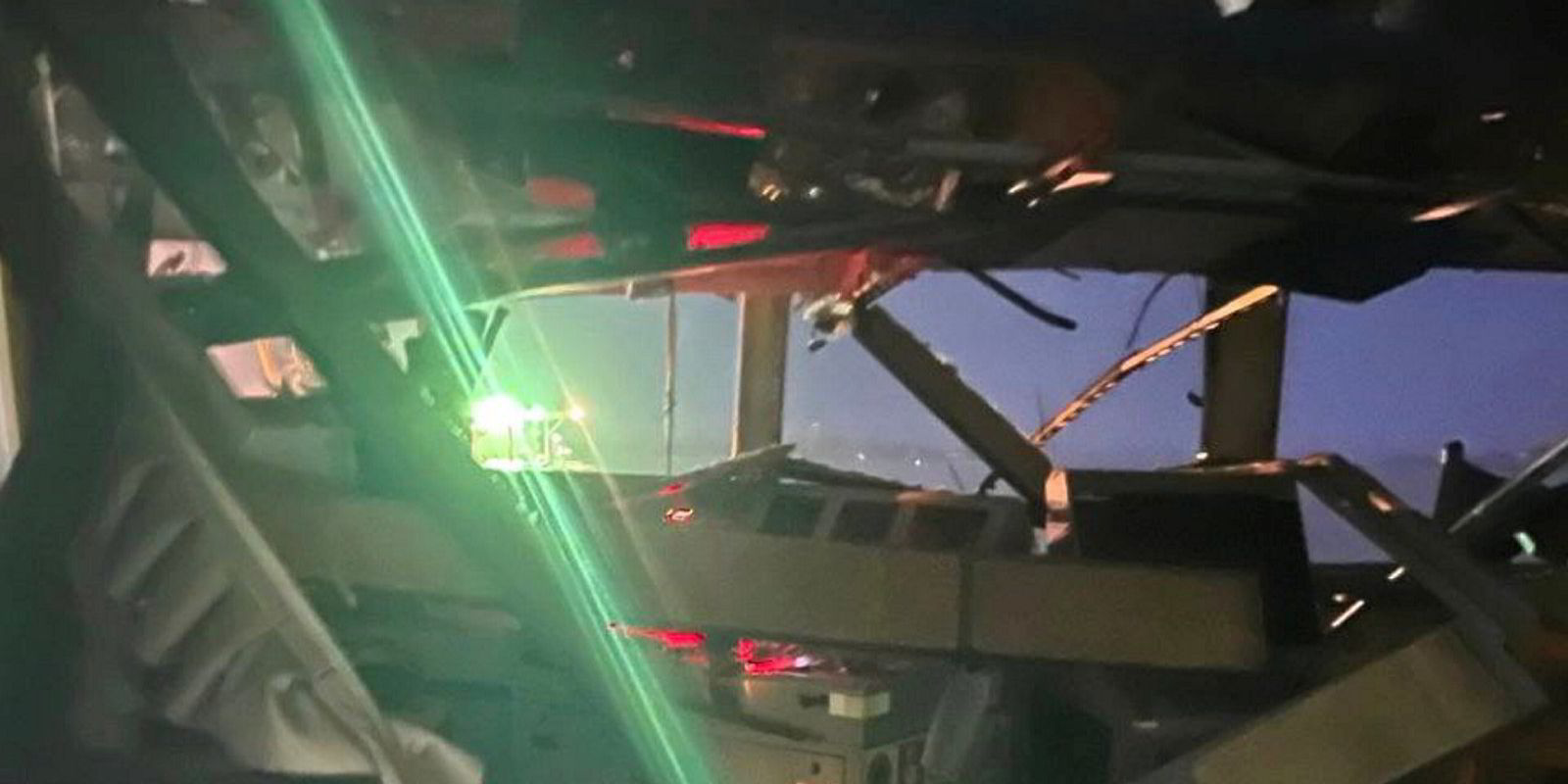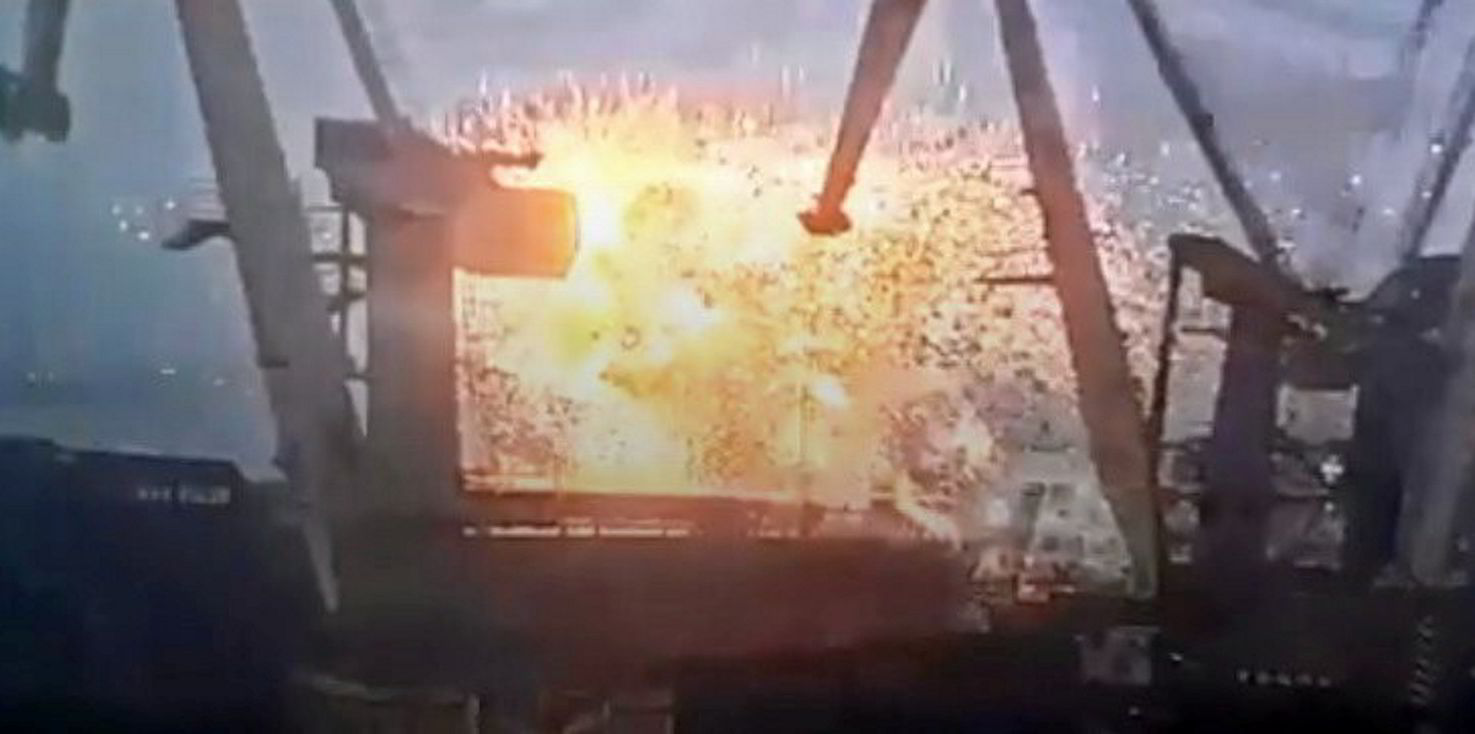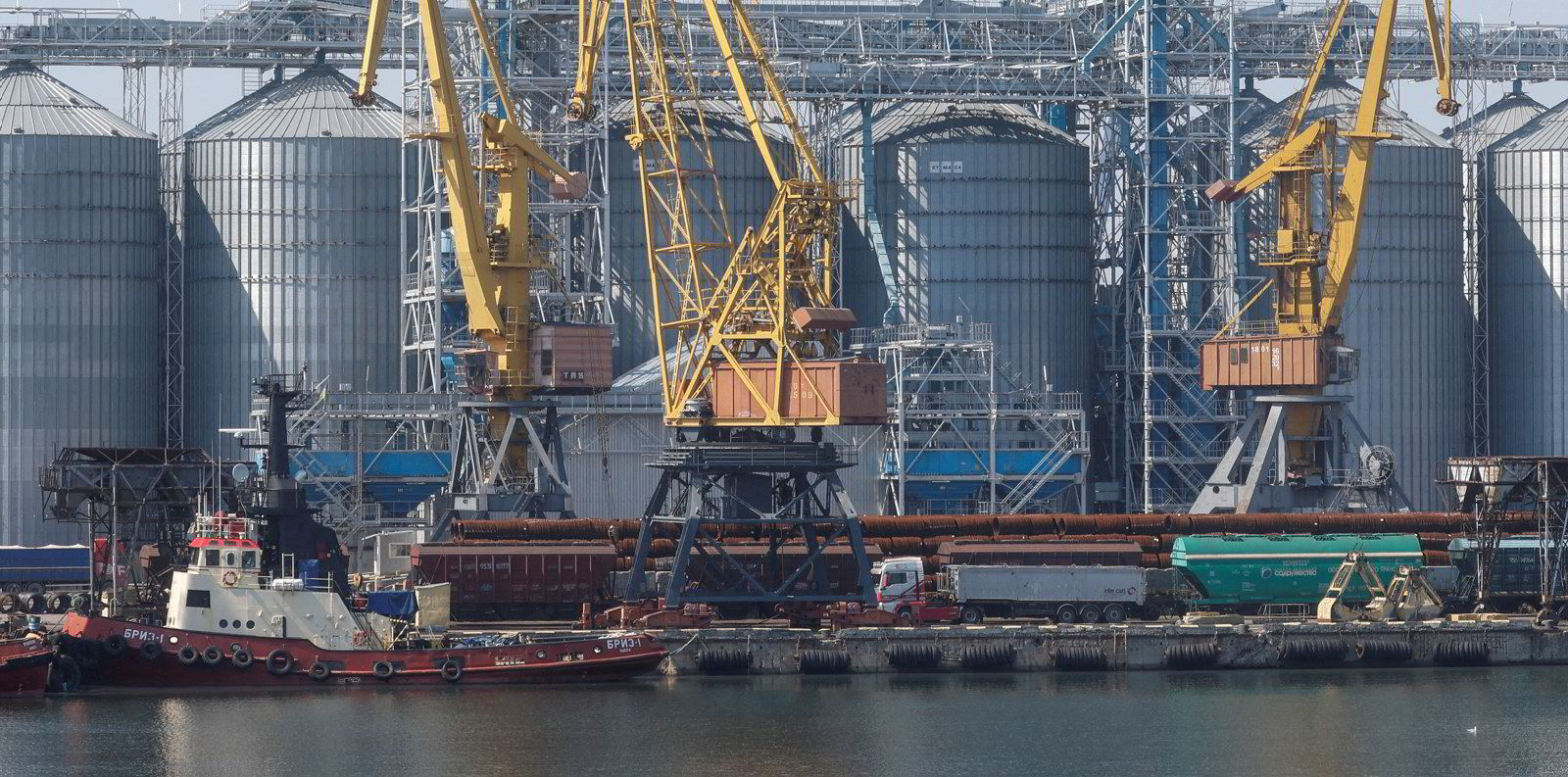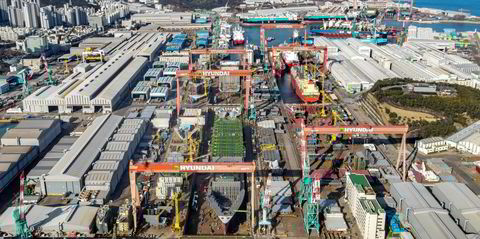The number of shipowners willing to employ their ships in the Ukraine-protected grain and iron trade corridor in the Black Sea has shrunk after a deadly missile strike on a bulker in Odesa last week.
“We are hearing that several vessels previously handled as Ukraine voyage candidates have been withdrawn from that market,” a manager who recently sent a ship there told TradeWinds.
With AIS signals largely switched off in the area for security reasons, it is difficult to follow ship movements from the Bosphorus to the three major Ukrainian ports of Odesa, Chornomorsk and Yuzhnyy/Pivdennyi.
However, sources following the trade confirm that activity has been “on the slow side” since the projectile — widely believed to have been a Russian missile — hit the 91,900-dwt Kmax Ruler (built 2009) in Yuzhnyy/Pivdennyi on 8 November, killing the bulker’s pilot and injuring three Filipino seafarers.
The incident highlighted Ukraine’s lack of capacity to provide full air cover for its ports, which Russia has subjected to repeated missile attacks to destroy oil depots, grain silos, shipyards and other infrastructure that Moscow believes Ukraine is using to attack Russian warships in the Black Sea.
Successful Ukrainian strikes against the Russian navy have helped diminish the latter’s control over the western half of the Black Sea.
This has allowed Ukraine to resume commercial ship traffic to and from its main ports after Russia pulled out in July from a United Nations-led corridor scheme that protected approaching vessels.
With about 100 bulkers of all sizes carrying more than 3.3m tonnes of grain and metal products out of the terminals, the Kyiv scheme has exceeded expectations.
That success is partly because Moscow has been unwilling, or unable, to directly attack Ukraine-bound vessels so far.
Ukrainian power projection in the Black Sea is just one explanation for this.
Another is that Russia might be loath to attack ships directly because some of them are controlled by its Chinese allies. Furthermore, direct strikes on Ukraine grain ships might invite retaliatory strikes on Russia’s own, flourishing seaborne grain trade in the Black Sea.
Ukrainian sources have even speculated that the hit on the Kmax Ruler could have been an accident, with the ship’s radio signals possibly attracting the missile.
‘Things look very dangerous’
Meanwhile, Russian bloggers have suggested that it was not a Russian missile that hit the ship but a Ukrainian anti-aircraft one that missed its target.
The question about the real culprit is of secondary importance to owners increasingly reluctant to send their vessels to an area that is attacked from the air with increasing frequency.
“Things look very dangerous now,” the ship manager said.
However, ship traffic into the region has hardly come to a stop. Observers have recorded 16 arrivals of ballasting vessels to the three Ukrainian ports since 9 November.
About as many loaded vessels have departed the terminals in the same period.
The vast majority of these voyages probably reflect charters agreed before the attack on the Kmax Ruler.
Given that Ukraine never closed any of the three ports, TradeWinds has been told that owners would find it difficult to get out of existing charter obligations.
The interesting question is how many voyages have been fixed after the attack.
Rising war risk premia are certainly discouraging — despite the fact that charterers often help cover them through partly state-subsidised schemes.
Insurance costs
One shipping source said they have climbed by one-third since last week, from 2% of an insured ship’s value to 3%.
Kyiv seems to be working on a solution.
Late on 14 November, the Ukrainian government tweeted on X that, in cooperation with “a pool of British insurance companies”, it has created a “mechanism to ensure access to the Black Sea corridor for exporters”.
No further details on the measure were announced and it is not immediately clear if it refers to cargo, vessels or both.
Press reports citing Ukrainian officials say this consists of a $50m backstop to help fund war risk insurance, possibly by way of discounts. Fourteen names are said to be taking part in the scheme, including Lloyd's of London and Marsh McLennan.
One sure way to mitigate higher insurance costs is better earnings.
When the Ukrainian grain corridor started operating in late August and early September, shipowners could expect proceeds two to three times the level of non-Ukraine business.
As the trade gained traction in the following weeks, the premium narrowed considerably to between $5,000 and $6,000 per day above non-Ukraine business.
The lack of information on fresh fixtures after the attack on the Kmax Ruler makes it difficult to assess if the earnings pendulum has swung back in the other direction again.
“I don’t think we’ll have a clear picture for another week or so,” the ship manager said.






